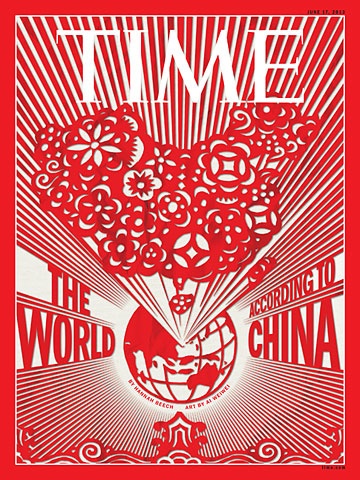
(4 of 7)
Some of the seamier side effects of China's three decades of spectacular economic growth--toxic air, poisoned soil, dirty water--are spurring civil unrest. Each day brings dozens of small-scale protests related to environmental degradation, landgrabs by corrupt officials and government repression of ethnic minorities. Those who can are voting with their feet: in ever larger numbers, rich Chinese are fleeing the land where they made their fortunes, taking their children and money with them. In 2011, the latest year for which statistics are available, 150,000 Chinese secured permanent residency abroad. "When a nation's elite is ready to bolt at a moment's notice, it says much about the regime's lack of legitimacy and staying power," says Shambaugh.
Battle for the Pacific
The U.S.S. freedom pulled into Singapore's harbor on April 18, its hull decorated in gray camouflage, as if no one might notice the first of four American littoral-combat ships to be hosted by the Southeast Asian city-state. The warship, which will roam the contested South China Sea, is the latest evidence of the U.S.'s so-called pivot to Asia, which will see 60% of American naval vessels deployed in the region by 2020, up from 50%. Back in November 2011, when Obama first announced that he would rebalance military forces to Asia, he said this was not meant to contain China. Nobody bought that, least of all China.
Beijing's military buildup--its defense spending has more than doubled since 2006, and its armed forces now include nearly 1.5 million service members, according to Chinese officials--is driven by a sense that it needs to prepare for a possible showdown in the Pacific with the world's remaining superpower. A Chinese defense white paper released in April noted that "China's overall national strength has grown dramatically" while "some country has strengthened its Asia-Pacific military alliances, expanded its military presence in the region and frequently makes the situation there tenser." That the "some country" remained unnamed was camouflage no more effective than the U.S.S. Freedom's gray paint.
As China's shadow has loomed larger, other Asian nations--including those with past grudges against the U.S., like Vietnam--have urged America to keep the peace in regional waters. In addition, treaty obligations require the U.S. to defend the security of Japan--and of Taiwan, which Beijing considers part of its sovereign territory. Over the past few months, Chinese patrol vessels have swarmed the East China Sea near a disputed scattering of islets called the Diaoyu in Chinese and the Senkaku in Japanese. The uninhabited rocks are administered by Japan, but China claims historical ties to the area, which is rich in natural gas and fishing resources.
